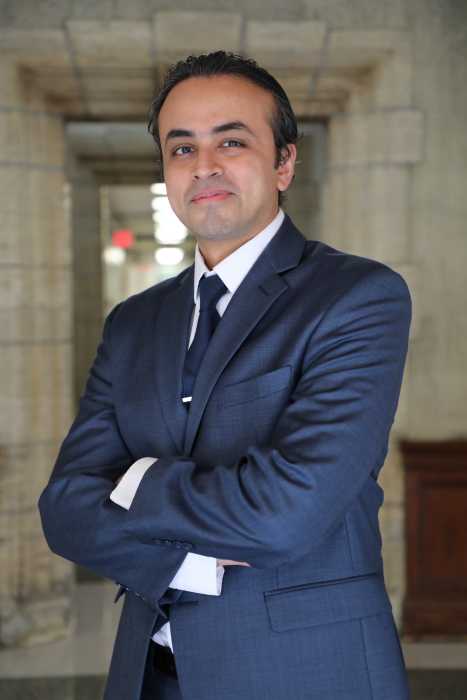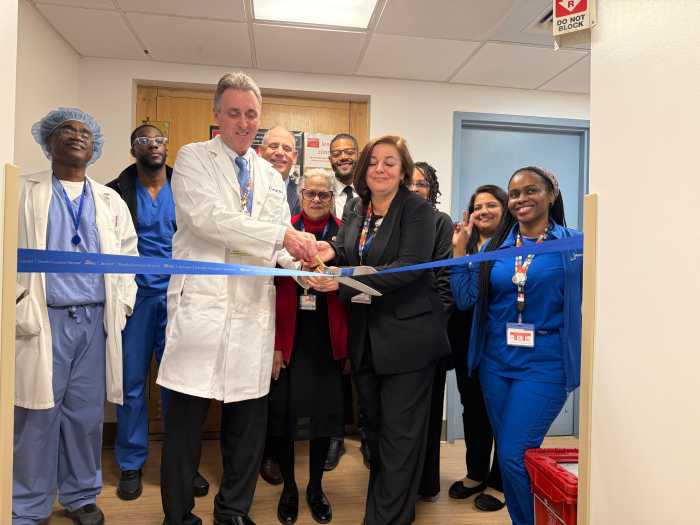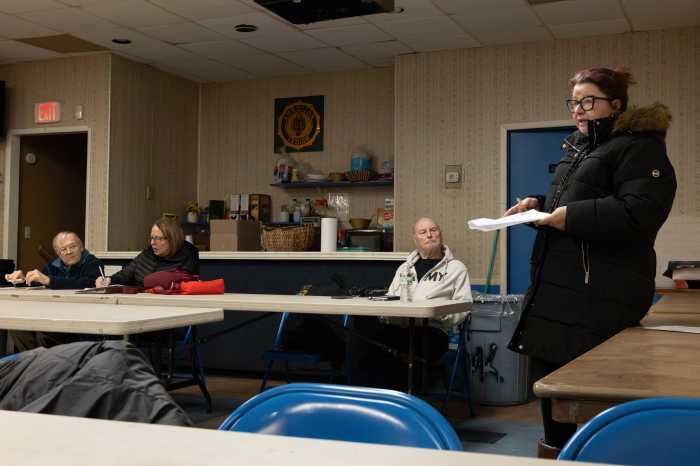Dr. Zeshan Chaudhry is the director of neuroradiology at Kings County Hospital. He works as an attending physician at multiple NYC hospitals, providing care to underserved communities in Brooklyn and the Bronx. He completed his residency at SUNY Downstate Medical Center, and a fellowship at Stanford University. His academic achievements include numerous publications, chapters, and abstracts, and multiple teaching awards, underscoring his commitment to advancing neuroimaging and the training of young physicians in the field.
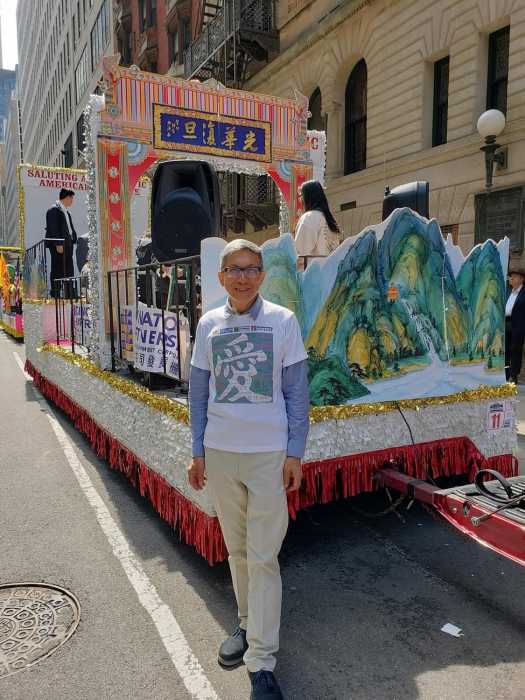
Wellington Chen
Director, Chinatown BID/Partnership

Wellington Chen came to New York to study art and architecture. While serving on the local community board and the board of the Flushing Council on Culture and the Arts, he, along with many others, helped to bring the historic town hall back to life as chair of the Culture and Landmarks Committees. Mr. Chen serves on many organizations including the Metropolitan Museum of Art and worked for the firm of the renowned architect, I.M. Pei & Partners.
If you could give your younger-self advice, what would it be?
Be Bold, believe in yourself and not be discouraged by naysayers. Never be afraid to try and to fail; and to get back up if at first you do not succeed. Keep exploring and move forward. Be consistent, persistence is one of greatest traits and indicators in ultimate success. Life is like a ship at sea, it will be bumpy with setbacks and unpredictable twists, adjust and adapt with resiliency and positive altitudes. Be kind!
Do you have any event/movie/music suggestions for our readers to check out in celebration of AAPI Heritage Month?
Our third annual AAPI Heritage Parade is coming up on Sunday, May 19th on 44th Street (between 5th and 6th Avenue) as well as our upcoming Pell Street Food Festival in Chinatown.
How has your heritage shaped the person you are today?
I am extremely blessed to be given a key to the Chinese language library with history dating back several thousand years. The lessons and wisdom they shared with us are priceless and invaluable.
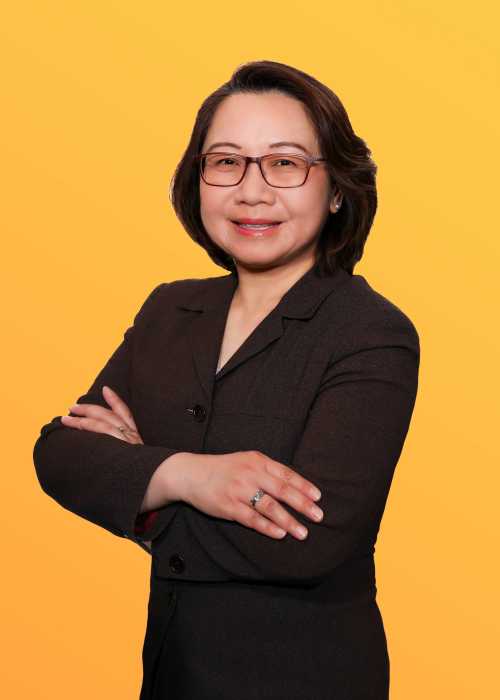
Willing Chin-Ma
Chief Operating Officer, Grand St. Settlement

Willing Chin-Ma is the chief operating officer at Grand St. Settlement, born in Hong Kong and raised in NYC. She is a strategic leader in the nonprofit sector supporting 17,500 New Yorkers. Willing’s spiritual faith drives her passion to help families and children in the Lower East Side and Brooklyn. Willing is an advocate for wage parity for early education teachers and human services workers. Willing’s dedicated leadership drove Grand Street’s recent Head Start expansion.
If you could give your younger-self advice, what would it be?
Follow your passion and don’t lose hope. Serving immigrant families like mine is a driving force behind my work and everything we do at Grand St. Settlement. Our communities need passionate individuals looking to make positive change. It can be difficult but the impact you can make on the lives of your neighbors is worth the effort.
Do you have any event/movie/music suggestions for our readers to check out in celebration of AAPI Heritage Month?
Every year Grand St. Settlement holds events for AAPI Heritage Month that allow our participants to learn about each other’s cultures and build community. Our Older Adult Center on the Lower East Side is one of the few tri-lingual programs of its type in New York City. Seeing our diverse community center participants celebrating Chinese culture always brings a smile to my face.
How has your heritage shaped the person you are today?
My parents immigrated to New York City from Hong Kong. They instilled in me strong values of hard work, centering family, and supporting my community. This led me to become a social worker and influences the work I do at Grand St. Settlement. I’m thankful for the sacrifices my parents made to allow me and my children to live out the American dream.
What can New York policymakers do to support the AAPI-community in the short-term? In the long-term?
Embrace immigrants, their cultures, and amplify the importance of their presence in our communities. Immigrants come here for the opportunity to make a life for their families. They want to add to our city, not detract from it. We must invest in their futures which will allow their successes to be our shared success. Additionally, policymakers and elected official support for universal child care will reduce poverty for all communities, including the AAPI community.
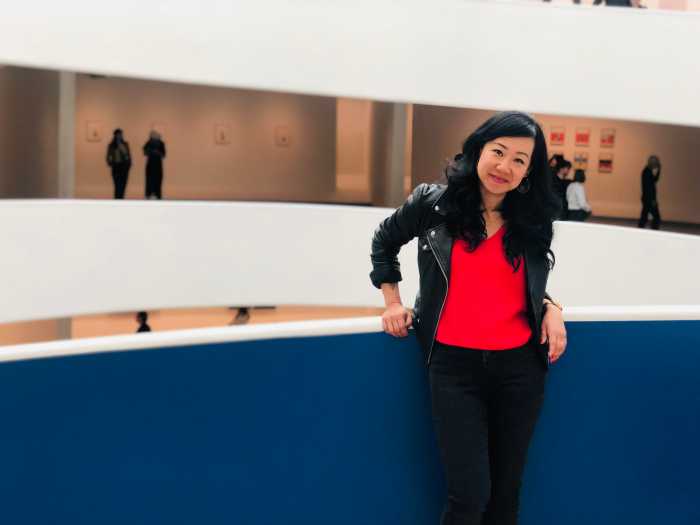
Hae-Lin Choi
Political Director, Communications Workers of America, District 1

Hae-Lin Choi has over two decades of experience in grassroots, union, and political organizing work. She is the area director for politics, legislation and mobilization for the Communications Workers of America (CWA), District 1. Before that, Hae-Lin oversaw CWA’s union campaign at T-Mobile She has been with CWA since 2009. Hae-Lin got her start in the labor movement in the German union ver.di in 2001. She earned her Ph.D. in political science from Free University in Berlin.
If you could give your younger-self advice, what would it be?
Trust in yourself, embrace resilience – and the confidence will come. Don’t doubt yourself and think you’re not ready to do something – do it, fail, and learn. It’s easier said than done, everyone knows that women of color always have to work harder and show up more than anybody else – face that head-on. Trust in the importance of solidarity and community, and always remember the power of collective action in effecting positive change.
Do you have any event/movie/music suggestions for our readers to check out in celebration of AAPI Heritage Month?
Books: “Pachinko” by Min Jin Lee and “Island of the Sea Women” by Lisa See are beautiful stories about strong women, “Kim Ji-young, Born 1982” by Cho Nam-Joo is a great feminist novel. Movies: “Past Lives” is a wonderful deep story of friendship and connection, “Minari” is a deeply moving portrait of immigrant life, “The Farewell” is a heartfelt comedy (Awkwafina is always good). “BEEF” is the best and I hope everyone has seen “Parasite.”
How has your heritage shaped the person you are today?
Being the daughter of Korean guest workers who came to Germany in search of a better life has deeply shaped me. My Korean heritage has taught me humility, respect for elders and a sense of community. Being the daughter of immigrants has taught me grit and resilience. Now I live in the U.S. and I feel blessed to be able to give my children the culture of so many worlds that I am part of.
What can New York policymakers do to support the AAPI-community in the short-term? In the long-term?
Listen to the AAPI community, try to hear and understand the diverse voices, interests, and needs and invest in the community as a whole, not just as a block of votes.
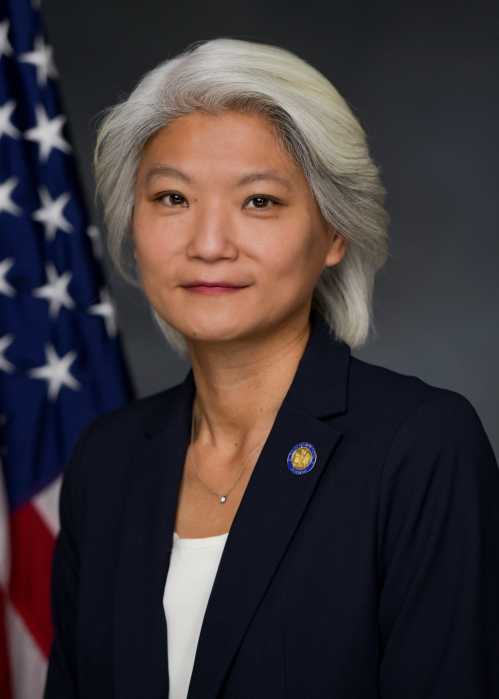
Iwen Chu
Senator, New York State Senate

Senator Iwen Chu represents New York’s 17th Senate District and began her term in office January 2023 to represent the Asian-majority district and becoming the first Asian woman in the New York State Senate. Senator Chu came to New York with the drive to pursue the American dream. Senator Chu was a local community journalist focused on amplifying the issues and stories within the AAPI community and has a decade of experience in public service.
If you could give your younger-self advice, what would it be?
My advice to my younger-self and to any young person I speak to is to believe in yourself, work hard, and aim for your highest dreams.
Do you have any event/movie/music suggestions for our readers to check out in celebration of AAPI Heritage Month?
I’m hosting my second annual AAPI Heritage Month celebration in southern Brooklyn! We have significant and diverse AAPI communities throughout my district, and I want to provide space for all community members to be proud of their heritage. This celebration will showcase the different traditions and cultures within the community. All are welcome to join and celebrate AAPI Heritage Month!
How has your heritage shaped the person you are today?
I came to this country at the age of 27 to pursue an education at CUNY. Being an immigrant, I had to re-learn so many systems from education to health care. I quickly fell in love with the beauty and diversity of Brooklyn and NYC. With the diversity here, I felt welcomed and that I belonged here. I want to make sure everyone feels celebrated here.
What can New York policymakers do to support the AAPI-community in the short-term? In the long-term?
I strongly believe we must invest in and support the future generations by expanding academic opportunities, building mental health support, and bringing resources directly to AAPI communities. As the first Asian woman elected to the State Senate, I’m proud to use my platform to push for the betterment of the community.
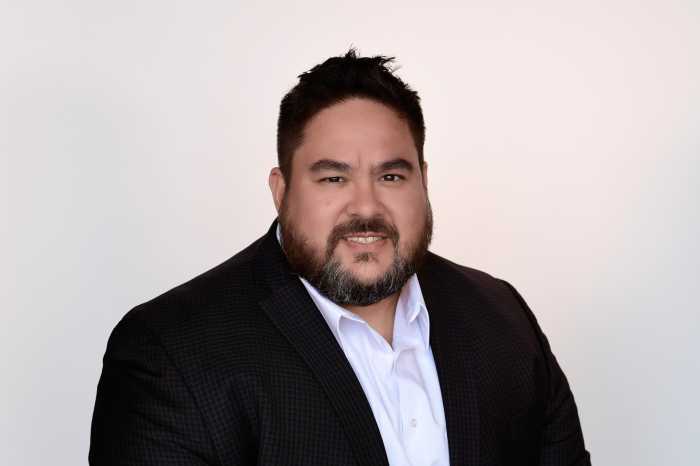
Sammy Chu
Founder and CEO, Edgewise Energy

As founder and CEO of Edgewise Energy, Sammy Chu leads a pioneering team specializing in developing solutions to facilitate our clean energy transition. Leveraging experience and expertise in policy, technology, and finance, Edgewise Energy crafts opportunities that drive sustainability and profitability for property owners, utilities, and financiers alike. With a decades-long commitment to clean energy initiatives and strategic partnerships, Sammy welcomes tackling complex opportunities to help define the future of energy consumption and resilience.
If you could give your younger-self advice, what would it be?
Embrace your differences. When you connect with people with different backgrounds and different perspectives, it is an opportunity for both of you to learn and grow.
Do you have any event/movie/music suggestions for our readers to check out in celebration of AAPI Heritage Month?
Other than trying to catch up on all of my daughter’s K-Pop favorites, I recently enjoyed watching “Warrior.” It’s a series that is based upon the writings of Bruce Lee and besides all of the indulgent Kung Fu fun, it also did an excellent job of highlighting the challenges and abuse that Chinese immigrants in San Francisco faced during the late 1800s.
How has your heritage shaped the person you are today?
I grew up with a Chinese grandmother and a Jewish grandmother. Both of them always gave me the same advice – “be a good person.” As simple as that advice may be, it has always been my guide. I also learned as a child how to play MahJong two entirely different ways. I can hang for a game in the back of a Chinese restaurant or with the Jewish ladies at the synagogue.
What can New York policymakers do to support the AAPI-community in the short-term? In the long-term?
I think policy makers, more than anything, need to work to change the tone of public discourse. We have witnessed a permissiveness of dog whistle language that invites or even promotes hatred and ridicule. There is still much room for better policy, but we can’t forget about the responsibility of everyday leadership.
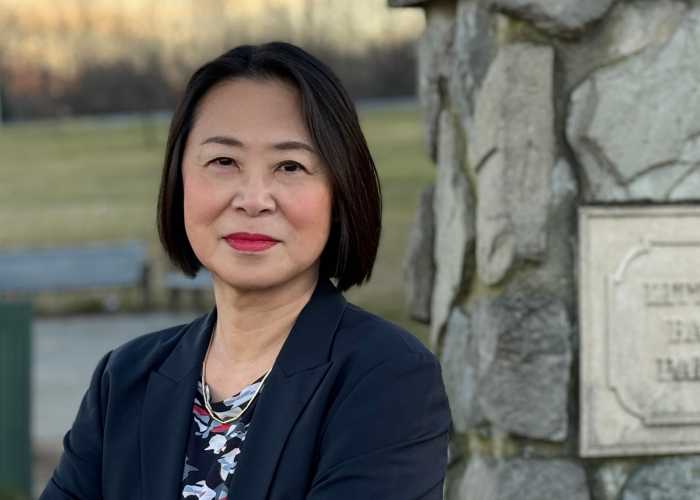
Yiatin Chu
President, Asian Wave Alliance

Yiatin Chu is the president and co-founder of Asian Wave Alliance (AWA), a non-partisan political club that focuses on local issues affecting quality of life issues of the local Asian American community. Prior to AWA, Yiatin co-founded PLACE NYC, an education advocacy organization to safeguard accelerated programs and curriculum for NYC public schools. As a non-English speaking immigrant, Yiatin overcame challenges and attended NYC’s Bronx High School of Science, and later Boston University on a full merit scholarship. She had a long career in the health care industry as an executive, and stepped away to be a full-time mother to her second child. Yiatin is running for New York Senate District 11 in Queens.
If you could give your younger-self advice, what would it be?
I would tell my younger self to not be shy, speak up and be persistent. I was the anxious kid who never wanted to be called on in class and dreaded public speaking. Since then, I have learned that by being silent, ideas are never heard and decisions are made for you. By being the persistent squeaky wheel, it’s an effective way to build a dialogue and advocate for change, even when it seems like the odds are against you.
Do you have any event/movie/music suggestions for our readers to check out in celebration of AAPI Heritage Month?
Definitely – Mandopop from the 1970s! Music by Taiwanese singers Teresa Deng (鄧麗君;) and Fong Fei Fei (鳳飛飛) always brings back fond memories when my dad used to play it around the house. For a movie, I highly recommend “The Farewell,” starring Awkwafina. I love how it conveys the sense of the dual culture we straddle as first-generation Asian Americans.
How has your heritage shaped the person you are today?
It was always important to my mom, who was a former school teacher, that I retained my fluency in Mandarin and it shaped my appreciation and advocacy for multilingual education. Although it wasn’t easy, my parents emphasized values from our heritage growing up – doing well in school, respecting your elders, saving for the future, and celebrating holidays and traditions with family. I am now raising my two daughters with the same values.
What can New York policymakers do to support the AAPI-community in the short-term? In the long-term?
For the Asian immigrant community, upholding and expanding merit based education opportunities like the Specialized High School Test (SHSAT) and Gifted and Talented programs are very important; a quality education is the path to assimilation and upward mobility. Asians have the highest rate of home ownership in New York, so protecting property rights and passing fair small landlord laws are important to our economic prosperity. Like all New Yorkers, we want our neighborhoods to be safe, clean, with a good quality of life and low taxes.
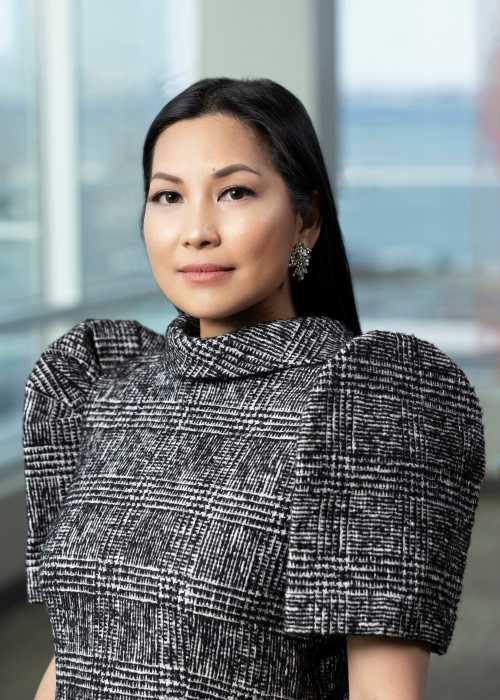
Anna Mercado Clark
Partner, Phillips Lytle LLP

Anna Mercado Clark is a partner at Phillips Lytle LLP, is co-leader of the firm’s technology industry team and is a member of the firm’s governing committee and its DEI steering committee. Anna is the president of the National Asian Pacific American Bar Association. She is an adjunct professor of law at Fordham University. She has also been appointed to three leadership positions on the American Bar Association’s Science and Technology Law Section.
If you could give your younger-self advice, what would it be?
Be as kind to yourself as you are to others. When you’re down, remember that things will get better, and many things that seem important now will fade into memory. So live in the moment but don’t let it overwhelm you.
Do you have any event/movie/music suggestions for our readers to check out in celebration of AAPI Heritage Month?
Read: “Interpreter of Maladies,” a book of short stories by Jhumpa Lahiri; Listen to: GENTO by Filipino band SB19; Support/Attend the National Asian Pacific American Bar Association’s (NAPABA) annual lobby day and congressional reception May 21 and 22nd, to advocate for critical issues facing the AANHPI community, which are issues that impact all Americans as well.
How has your heritage shaped the person you are today?
I moved to the U.S. from the Philippines when I was about 11 or 12 years old, so I have vivid memories and personal connections to family, friends, and places there. That transition was very difficult and emotional. Both of these things remind me to be open to diverse opinions and to constantly expand my comfort zone, even when it means embracing discomfort, in order to grow. I now express my gratitude for my heritage by wearing traditional Filipino attire for personal, public, and professional engagements (even on my law firm biography photo). It has led to so many interesting and genuine conversations and exchange of ideas about culture, fashion, and community.
What can New York policymakers do to support the AAPI-community in the short-term? In the long-term?
Crimes against AAPIs, their property or places of worship or community are rampant. Policymakers should establish and strengthen policies and laws to protect vulnerable populations, provide support, and deter incidents. There is a dearth of AAPI judges and anti-AAPI sentiments have seeped into nomination hearings and discourse. Listen for these dog whistles. Be allies against injustice and elevate deserving and qualified candidates, so that our courts can reflect the communities that they serve.
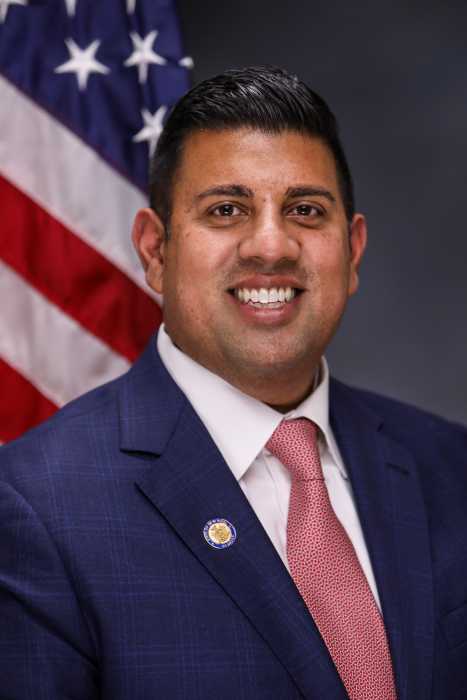
Jeremy Cooney
Senator, New York State Senate

Senator Cooney was adopted from an orphanage in Kolkata, India and raised by a single mother in the city of Rochester. He made history in 2020 as the first Asian American elected to state office from upstate New York, and the first state senator in decades to graduate from Rochester City School District (RCSD). Senator Cooney represents New York’s 56th District, encompassing parts of Monroe County and the City of Rochester.
If you could give your younger-self advice, what would it be?
Speak up, and speak up often. Don’t assume that others know your views. You are your own best advocate.
Do you have any event/movie/music suggestions for our readers to check out in celebration of AAPI Heritage Month?
I’ve been surprised and pleased by the amount of AAPI programming on streaming channels and in the Hollywood studios. We need more representation from AAPI actors in leading roles, regardless of the subject matter.
How has your heritage shaped the person you are today?
How can it not? I’m a brown man with an Irish name. It’s the first part of every new conversation I have. More importantly, my journey beginning in an Indian orphanage has compelled me to prioritize anti-poverty and pro-child legislation in my work as the first AAPI state-elected official outside of Greater NYC.
What can New York policymakers do to support the AAPI-community in the short-term? In the long-term?
Currently, we are building a foundation for our AAPI population, including my passed legislation for a NYS-AAPI Commission. This will help identify unique public policies that are needed to best serve our AAPI neighbors. In the long-term, I’d like to see more inclusionary pushes, such as changes to our school curriculum to reflect Asian stories in our collective history.
Vijay Dandapani
President and CEO, Hotel Association of New York City
Vijay Dandapani is a hotel industry veteran who co-founded Apple Core Hotels. He was appointed president and CEO of the Hotel Association in January 2017. He is an active participant in the hospitality industry and has spoken on hospitality issues at many forums sponsored by organizations such as the Lodging Conference in Phoenix, and the ALIS conference. As part of New York’s response to the COVID crisis, Mr. Dandapani was also appointed by Governor Cuomo to the New York Forward Advisory Board, which was tasked with guiding the state’s reopening strategy.


